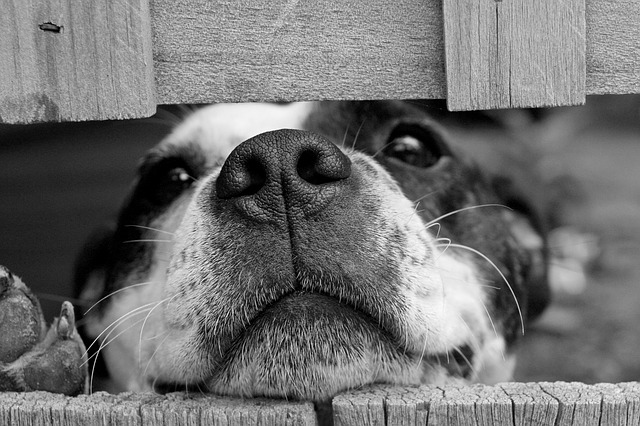Pet Health Insurance:
How Pet Insurance Works and if it's worth it
By Everything Shih Tzu August 18, 2020
This post may contain affiliate links. Read privacy & disclosure policy for info
If you're wondering if you need pet health insurance for your Shih Tzu or not, read this article and then decide if it makes sense for you.
We all like to take care of what we have--our family, our homes, and even our cars have insurance. So having pet insurance to care for your dog when she gets sick seems pretty logical too.
 Pet health insurance
Pet health insuranceIf you're like my household, your dogs are a part of the family, and as family members, we want to care for them as we do ourselves.
That said, let's look into why pet insurance may be helpful to you and your furbaby, but first, you'll need to know the basics.
What Is Pet Health Insurance?
Pet Insurance covers your veterinary expenses in case your pet becomes ill or is injured.
Many pet guardians don't consider insurance until it is too late, which can be a costly mistake.
Veterinarian bills can get expensive, especially when it comes to things like surgery.
Having pet insurance can save you from unexpected expenses that can go up to thousands of dollars depending on what illness or injury your pet has incurred.
How Does Pet Insurance Work?
Pet insurance works a lot like human health insurance whereas the insurance plan pays a portion of the veterinarian bill.
You choose a deductible, pay a monthly fee and choose a veterinarian who participates in the insurance plan.
How it differs from human insurance is you pay the veterinarian in full then submit a claim to the insurance company for reimbursement on the covered treatments.
How Much Does Pet Insurance Cost?
There are several variables in the cost of pet insurance, and there isn't a "one size fits all" plan.
The plan you choose, deductibles, age of the pet, and pre-existing conditions will significantly influence the cost you will pay for coverage.
It comes with its set of deductibles, co-pays, premiums, and usually no coverage for pre-existing health conditions.
Insurance premiums can go up or down depending on how much of a deductible you opt for and how much you are willing to co-pay for an insurance claim.
In fact, like humans, pet health insurance can be more expensive for older animals that are more prone to getting sick.
Some of the better insurances may also cover wellness procedures, including vaccinations, neutering, heartworm testing, and the like.
And with the advancement in biotechnology, veterinary expenses have increased considerably due to costs associated with the state-of-the-art equipment used to diagnose the illness.
Also, the demand for veterinarians has increased, and so has the cost of training and providing quality service.
All these factors increase the costs associated with taking proper care of your pet’s health.
Is it worth it to have pet insurance?
Almost all pets during their life will get a disease, infection, or have some sort of accident, which means a trip to the vet.
Depending on your pet's health, this can be even more expensive if they need specific specialist treatment or surgery.
Imagine for a moment your precious pup is severely injured in a dog fight.
This recently happened to a friend of mine.
She was outside her home throwing the ball to her dog as she does nearly every day.
She had heard, then seen two dogs barking pretty aggressively from behind the fence and decided to bring her dog indoors as a precaution.
Unfortunately, before she could get inside, those two dogs hopped the fence, running into her yard, viciously attacking her dog.
It took only moments for this to happen.
Thankfully a neighbor had heard her screams for help and managed to get the attacking dogs away from them.
But the damage had been done as there was a massive amount of injuries to her beloved dog.
She rushed her dog to an emergency Veterinarian where she would find the medical bills ran into the thousands of dollars.
She hadn't planned for something like this, and although she had some money put away, she didn't have the means to pay for the medical care her dog would need to be well again.
Although the medical staff was sympathetic to her, they told her that she would have to decide whether to go ahead with the surgeries or put her beloved dog down.
She was devastated by the thought of doing the latter but didn't know how she would pay for what was needed.
For many pet parents, this is simply out of their budget. When emergencies arise, they often have to decide to proceed with the expensive medical treatments and go into debt or let their beloved pet go.
In my friends' case, she chose not to say goodbye to her furbaby.
She used her credit cards and borrowed money to cover the expensive medical treatment needed for that day as well as the follow-up care.
She realized too late that had she purchased pet insurance, most of those medical bills would have been covered, and she would have avoided going into debt.
But she is very grateful her precious pup is still with her and has recovered incredibly well despite the severity of the attack.
Putting aside money for an event like this may seem like a good alternative to buying insurance; however, in many cases, we generally don't save nearly enough before something catastrophic happens.
When you purchase a health insurance policy, it is immediately available to you if you need it right away, whether from an attack, injury, or a serious illness.
However, not all insurance policies are the same—there of varying types of coverage benefits available in pet insurance that you need to be aware of.
Now that you know the basics of pet insurance keep reading to learn about the different types of coverage benefits available in pet insurance plans.

what does pet insurance actually cover?
Pet health insurance generally covers unexpected medical costs should your pet become sick or has an accident.
Some types of insurance plans will also include preventative check ups and cover illnesses such as allergies and skin conditions to serious illnesses such as diabetes and cancer.
When opting for pet insurance, it is important that you consult with your veterinarians to understand what type of coverage would benefit you and your pet the most.
You'll need to have a good idea about the deductibles and co-pays which are required to pay on your insurance plan.
Some insurance companies may not cover pre-existing health conditions, or they might have specific veterinarians on their panels. (Be sure to confirm that your veterinarian is on the approved list of doctors on the pet health insurance plans you are choosing.)
Many insurance companies offer pet insurance, however not all plans are the same. Some of the most commonly used insurance policies include:
Accident Only Plans
If you are concerned about your pet injuring itself due to an accident such as falling from a high place or being struck by a moving object, you can opt for Accident only insurance, which covers injuries including broken bones or burns.
However, this type of insurance may not cover health issues due to an illness.
Accident and Illness Plans
Not only does this plan cover any accidents as in the accident only plan but it covers illnesses like digestive issues, infections, allergies, poisoning, and cancer.
Pet Wellness Plans
Wellness plans cover for routine vet visits and prevention concerns including annual physical checkup, flea and tick preventatives, neutering, dental, nutrition and vaccinations.
Having such health plans allow you to minimize expenses while keeping an eye on your pet’s health with routine checkups.
Lifetime Insurance Plans
These types of plans provide your pet with the most comprehensive coverage giving you relief in case of health, accidental, or any other preventive and regular health expense related to your pet.
Since they are quite comprehensive regarding coverage, they are usually the most expensive to maintain.
Lifetime insurance plans are ideal for pets who have a chronic illness and require complicated surgical procedures on a regular basis. However, keep in mind most insurance plans will not include pre-existing conditions.
Apart from these primary types of coverage benefits, there are time or amount capped insurances as well which cover your pet’s health until you reach a certain threshold, such as 12 months or $1500.
What are the Best Pet Health Insurance plans?
To find your perfect insurance plan, you need to ask yourself questions like:
- how much you want to spend on your premium
- how much deductible you can afford on a claim and,
- what percentage of expense would you be willing to share with your insurance provider, generally termed as a co-pay.
Before choosing the perfect plan for your pet, you should also call your veterinarian to ask what type of insurance coverage would best suit your pet’s health needs, and then do your research.
Once you have received the answers to all of your questions, you are ready to shop for the perfect plan that will take care of your pet's health expense.
While looking for the perfect health insurance plan for your pet, look for the following aspects:
Coverage Options
The best pet insurance package is one which provides multiple options for selecting your deductible amounts, your payout percentages, and does not put a cap on your treatment plan.
Some of the best insurance plans in the market allow you to choose a deductible amount from as low as $100 to as high as $500.
They provide you multiple payout options as well on your final bill. The best pet insurance plan will not limit your coverage to a period or a dollar amount.
Add-on Options
Add-on options are great features for your pet's health insurance. These include dental care, travel insurance and the like.
If your insurance policy includes these services, they will be a great benefit in maintaining your pet’s hygiene and make it easier for you to travel together with your pet.
Customer Service
Customer service is the key to selecting your perfect insurance plan. When selecting your pet’s health insurance, be sure to browse through online reviews to learn about the customer service of your potential insurance provider.
A company with great customer service will process your claims faster and help you in identifying quick solutions for your pet’s health problems.
Coverage for Hereditary/Pre-Existing Conditions
Depending on the stage of your pet’s life at the time of opting for health insurance, there might be pre-existing or hereditary health conditions that some insurance providers may not cover.
Talk to your veterinarian to confirm any pre-existing health issues and make sure that they are getting coverage in your pet's health insurance policy.
Low Premium
It is all about how much premium you are paying every month. The best insurance plan is one that gives you appropriate coverage with an economically viable premium plan.
The best pet health insurance plan would be competitive with the market and within your monthly budget.
As a devoted parent to your Shih Tzu, you always want to see them healthy and active.
Unfortunately, illness is a part of life, and you cannot foresee what accident might occur resulting in an injury to your beloved dog.
Getting insurance for your pet may just be as important as getting insurance for yourself, it simply gives you a peace of mind if an unexpected illness or accident strikes.




